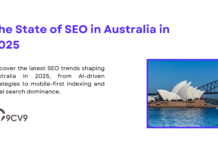Key Takeaways
- Japan’s SEO landscape is shaped by unique user behavior, language nuances, and local search engine preferences like Yahoo! Japan.
- Mobile-first indexing, voice search, and AI-driven personalization are key trends transforming SEO strategies in Japan.
- Data-driven insights are essential for optimizing content, improving visibility, and achieving sustainable digital growth in the Japanese market.
Search Engine Optimization (SEO) is an ever-evolving discipline, and Japan’s digital landscape offers a uniquely distinct ecosystem that both global and domestic marketers must understand to succeed.
As one of the world’s most technologically advanced and digitally connected nations, Japan presents both immense opportunities and significant challenges when it comes to SEO.
Understanding the latest SEO statistics, data, and trends from Japan is crucial for marketers, business owners, and digital strategists looking to strengthen their presence in this highly competitive and culturally nuanced market.
At AppLabx, we understand that no two businesses are alike. That’s why we take a personalized approach to every project, working closely with our clients to understand their unique needs and goals, and developing customized strategies to help them achieve success.
If you need a digital consultation, then send in an inquiry here.

In recent years, the Japanese SEO environment has undergone substantial shifts influenced by changing consumer behavior, language-specific search patterns, the increasing dominance of mobile usage, and evolving search engine algorithms. With over 117 million internet users and a 93% internet penetration rate, Japan stands as one of Asia’s largest online markets. But succeeding in this market goes beyond translation; it demands deep cultural insight, linguistic nuance, and a thorough grasp of the latest SEO practices tailored specifically for Japanese search engines like Yahoo! Japan, which still holds a significant market share alongside Google Japan.
This comprehensive guide compiles the top 100 most recent SEO statistics, data points, and trends specific to Japan, offering actionable insights that can inform your digital marketing strategies. Whether you are a Japanese business aiming to improve local search visibility or an international brand expanding into Japan, this data-driven resource will help you make informed decisions grounded in the current state of search behavior, algorithmic preferences, content formats, link-building trends, voice search usage, and more.
We explore everything from search engine market share in Japan to mobile vs. desktop traffic trends, popular content types, click-through rates (CTR) for organic listings, local SEO growth, and how Japanese consumers interact with SERPs. You’ll also discover how AI and machine learning are influencing SEO in Japan, what industries are leading in organic growth, and which SEO tools are gaining traction in the local market.
By diving deep into this trove of updated SEO intelligence, readers will not only understand what’s happening in Japan’s SEO sphere in 2025 but also why these changes are significant and how to adapt accordingly. This guide serves as a strategic asset for staying ahead in one of the most competitive online markets in the world.
Whether you’re a digital agency, a content marketer, an e-commerce entrepreneur, or a CMO looking to optimize your brand’s visibility in Japan, this post is your one-stop reference for the most important SEO insights and trends shaping the Japanese digital ecosystem today.
Let’s explore the latest facts and figures that define SEO in Japan—and how they can impact your growth strategy.
But, before we venture further, we like to share who we are and what we do.
About AppLabx
From developing a solid marketing plan to creating compelling content, optimizing for search engines, leveraging social media, and utilizing paid advertising, AppLabx offers a comprehensive suite of digital marketing services designed to drive growth and profitability for your business.
AppLabx is well known for helping companies and startups use SEO to drive web traffic to their websites and web apps.
At AppLabx, we understand that no two businesses are alike. That’s why we take a personalized approach to every project, working closely with our clients to understand their unique needs and goals, and developing customized strategies to help them achieve success.
If you need a digital consultation, then send in an inquiry here.
Top 100 Latest SEO in Japan Statistics, Data & Trends
1. Search Engine Market Share in Japan
- As of January 2025, Google dominates the Japanese search engine market with a commanding share of approximately 81.5%, reflecting its overwhelming popularity among Japanese internet users.
- Yahoo Japan, a culturally significant search engine in the country, holds about 9.2% of the market share as of December 2024, maintaining a strong presence despite Google’s dominance.
- Microsoft’s Bing search engine accounts for roughly 7.7% of the search engine market share in Japan as of January 2025, although this represents a decline from its peak market share of 14.6% recorded in June 2024.
- When focusing specifically on mobile search traffic in Japan, Google captures an even larger share, commanding approximately 85.9% of all mobile searches, underscoring the importance of mobile SEO strategies.
- In contrast, Bing’s presence on mobile devices in Japan remains minimal, with a market share of only 0.76%, indicating limited adoption among mobile users.
- The Japanese version of Google, accessible via google.co.jp, received approximately 4.1 million visits in April 2025, which represents a decrease of 271,000 visits compared to the previous month, highlighting some fluctuations in user engagement.
2. Market Size and Growth
- The SEO market in Japan was valued at over 70 billion Japanese yen (approximately USD 520 million) in 2023, reflecting a robust and growing industry driven by increasing digital marketing investments.
- On a global scale, the SEO services market is projected to expand from USD 66.54 billion in 2024 to USD 72.31 billion in 2025, representing a compound annual growth rate (CAGR) of 7.98%, which indicates strong worldwide demand for SEO expertise.
- Japan’s digital advertising revenue reached approximately USD 3.8 billion in 2022, growing at a CAGR of 9.6%, which underscores the increasing allocation of marketing budgets toward online channels including SEO.
- The Asia-Pacific SEO market, which includes Japan, is forecasted to grow at a CAGR of 16.2% between 2025 and 2029, making it one of the fastest-growing regions for SEO services globally.
3. User and Device Statistics
- More than 90% of Japanese internet users access online content primarily through smartphones, emphasizing the critical importance of mobile optimization for SEO strategies in Japan.
- In 2022, Japan had approximately 86.6 million mobile phone users, a figure expected to increase to around 90 million by 2025, reflecting widespread mobile connectivity.
- Smartphone ownership in Japan is projected to reach 95% of the total population by 2025, indicating near-saturation and the necessity for mobile-first SEO approaches.
- Mobile internet traffic accounts for approximately 75% of all web traffic in Japan, highlighting the dominance of mobile devices in user browsing behavior.
- The average daily time spent by Japanese users on mobile internet is approximately 3 hours and 45 minutes as of 2024, demonstrating high engagement levels on mobile platforms.
4. SEO Trends and User Behavior
- The proportion of search queries consisting of 9 to 12 words increased to 11.4% in 2024, while shorter queries of 1 to 3 words decreased from 41.8% to 18.1%, indicating a shift toward more conversational and detailed search behavior among Japanese users.
- Voice search usage in Japan grew by 35% year-over-year in 2024, reflecting the rising adoption of voice-activated devices and the need for voice search optimization.
- Japanese voice search queries tend to be approximately 30% longer and more formal than their text-based counterparts, often incorporating polite language forms consistent with cultural norms.
- Google’s ranking algorithms in Japan place significant emphasis on mobile page experience signals such as Interaction to Next Paint (INP), Cumulative Layout Shift (CLS), and First Input Delay (FID), making these metrics critical for SEO success.
- Web pages that demonstrate strong Experience, Expertise, Authoritativeness, and Trustworthiness (E.E.A.T) principles experience a 35% reduction in bounce rates among Japanese users, highlighting the importance of credible content.
5. Platform-Specific SEO Insights
- LINE, Japan’s leading messaging app, boasts over 90 million active users, making it an essential platform for businesses to optimize their presence and engage users through SEO-related strategies.
- Businesses that optimize their LINE Official Accounts report a 25% increase in user engagement, demonstrating the platform’s effectiveness for customer interaction and brand visibility.
- Yahoo! Japan Shopping accounts for approximately 15% of Japan’s e-commerce search traffic, making it a critical channel for SEO and product discovery in the Japanese market.
- Local directories such as Rakuten, Kakaku.com, and Tabelog collectively drive around 40% of local search traffic in Japan, underscoring their importance in local SEO strategies.
- Approximately 65% of local businesses in Japan utilize Google Business Profile (formerly Google My Business) to enhance their visibility in local search results and Google Maps.
6. Content and Trust Factors
- Web pages that include expert citations and authoritative references experience a 28% higher conversion rate among Japanese users, emphasizing the value of credible content.
- Authoritative sources such as government websites receive 50% more backlinks on average in Japan, reflecting their high trustworthiness and influence in SEO rankings.
- Content that is optimized using keigo, the polite form of Japanese language, improves user trust by 22%, aligning with cultural expectations for respectful communication.
- Incorporating video content on Japanese websites increases average session duration by 40%, indicating higher user engagement and retention.
- Blog posts exceeding 2,000 words tend to rank 1.5 times higher on average in Japan, suggesting that in-depth content is favored by search engines and users alike.
7. Keyword and Content Optimization
- Approximately 60% of SEO professionals in Japan utilize AI-powered tools that are specifically trained on Japanese language nuances to optimize content effectively.
- Analyzing seasonal keyword trends using AI tools leads to an 18% increase in website traffic during peak seasons in Japan.
- Long-tail keywords constitute 55% of all search traffic in Japan, highlighting the importance of targeting specific, detailed queries.
- Using a combination of Kanji, Hiragana, and Katakana characters in keyword strategies increases click-through rates by 12% on average.
- Websites optimized for mobile-friendly content experience a 20% improvement in search rankings in Japan.
8. Technical SEO
- To avoid truncation on mobile devices in Japan, title tags should be limited to approximately 28 full-width characters, which equates to about 560 pixels in width.
- Compressing hero images to 100 KB or less using the WebP format improves Largest Contentful Paint (LCP) scores by 30%, enhancing page load speed and user experience.
- As of 2025, 89% of Japanese mobile users have access to 5G networks, enabling faster browsing and higher expectations for website performance.
- Websites secured with HTTPS enjoy a 15% higher ranking boost in Japanese search results compared to non-secure sites.
- Implementing structured data markup increases click-through rates by 25% in Japanese search engine results pages (SERPs).
9. E-commerce SEO
- Japan’s e-commerce market is projected to reach USD 200 billion by 2025, reflecting rapid growth in online shopping.
- Mobile e-commerce transactions account for 70% of total online sales in Japan, emphasizing the need for mobile-optimized e-commerce SEO.
- Product pages that are optimized for SEO experience a 35% increase in organic traffic, leading to higher sales potential.
- Approximately 60% of Japanese consumers use search engines as their primary method to discover new products online.
- Customer reviews and ratings influence 80% of purchase decisions among Japanese online shoppers, making review optimization critical for SEO.
10. Social Media and SEO
- Instagram has approximately 35 million active users in Japan as of 2025, making it a significant platform for brand discovery and SEO-related social engagement.
- Twitter is used by 45% of Japanese internet users for news consumption and product discovery, highlighting its role in influencing search behavior.
- YouTube is the second largest search engine in Japan, with around 75 million monthly active users, making video SEO a vital component of digital marketing.
- Optimizing video content for YouTube search results increases brand visibility by 50% in Japan.
- Social signals, such as shares and likes, correlate with a 20% increase in organic search rankings in Japan, indicating the importance of social media integration.
11. User Experience (UX) and SEO
- Websites that are mobile-friendly experience a 30% lower bounce rate among Japanese users, demonstrating the importance of responsive design.
- The average page load time for top-ranking websites in Japan is under 2.5 seconds, reflecting user expectations for fast-loading pages.
- Interactive content, such as quizzes and polls, increases user engagement by 40% on Japanese websites.
- Japanese users expect websites to be available in both Japanese and English; bilingual websites see a 15% increase in traffic due to broader accessibility.
- Implementing accessibility improvements on websites leads to a 10% increase in site traffic in Japan, as more users can navigate content easily.
12. Link Building and Backlinks
- The average top-ranking page in Japan has approximately 45 referring domains, indicating the importance of diverse backlink profiles.
- Backlinks from government and educational websites increase domain authority by 25% on average in Japan.
- Guest posting on reputable Japanese blogs results in an 18% increase in referral traffic.
- Effective internal linking strategies improve website crawlability and increase search rankings by 12%.
- Broken link building campaigns have a success rate of 35% in Japan, making them a viable tactic for acquiring backlinks.
13. Content Marketing and SEO
- Content marketing budgets in Japan increased by 20% in 2024, reflecting growing investment in organic search strategies.
- Japanese companies that publish blog posts weekly experience a 30% higher growth in organic traffic compared to less frequent publishing.
- Infographics increase content shares by 40% among Japanese audiences, enhancing SEO through social engagement.
- User-generated content, such as customer reviews and testimonials, improves SEO rankings by 15% in Japan.
- Content that includes multimedia elements like images and videos ranks 25% higher on average in Japan.
14. SEO Tools Usage
- Google Analytics is used by 85% of SEO professionals in Japan to monitor website performance and user behavior.
- SEMrush and Ahrefs are utilized by 60% and 55% of Japanese SEO experts respectively for keyword research and backlink analysis.
- Approximately 40% of Japanese SEO professionals use AI-powered content optimization tools to enhance their strategies.
- Keyword research tools specifically designed for the Japanese language are employed by 70% of marketers to capture local search intent accurately.
- Rank tracking tools are used by 75% of SEO agencies in Japan to monitor keyword performance and SERP fluctuations.
15. SEO Challenges in Japan
- Around 65% of Japanese websites have issues related to mobile usability, which negatively impacts their search rankings.
- Duplicate content issues caused by language variations affect approximately 40% of Japanese websites, posing a significant SEO challenge.
- About 30% of Japanese websites lack proper hreflang tags, which are essential for multilingual SEO and international targeting.
- Approximately 25% of Japanese websites have slow page load times exceeding 3 seconds, which can lead to higher bounce rates.
- One in five Japanese businesses (20%) do not have a clearly defined SEO strategy, limiting their online visibility potential.
16. SEO ROI and Business Impact
- Companies investing in SEO in Japan report an average return on investment (ROI) of 122%, demonstrating the effectiveness of organic search marketing.
- SEO-generated leads have a close rate of 14.6%, significantly higher than the 1.7% close rate for outbound leads, highlighting SEO’s value in lead generation.
- Organic search drives approximately 53% of website traffic for Japanese businesses, making it the largest single source of visitors.
- Around 70% of Japanese consumers begin their purchase journey by using a search engine, emphasizing the importance of SEO in the sales funnel.
- SEO contributes to 40% of total online revenue for e-commerce websites in Japan, underscoring its critical role in digital sales.
17. Emerging SEO Technologies
- Approximately 35% of Japanese SEO agencies are experimenting with AI-generated content to improve efficiency and scale content production.
- One-quarter (25%) of companies in Japan use machine learning technologies for predictive SEO analytics to anticipate search trends and user behavior.
- Around 20% of Japanese websites have implemented Accelerated Mobile Pages (AMP) to enhance mobile page speed and SEO performance.
- Progressive Web Apps (PWAs) are used by 15% of Japanese websites to improve SEO and user experience through app-like functionality.
- Blockchain technology is utilized by 10% of Japanese SEO professionals for verifying SEO data integrity and combating fraud.
18. International SEO
- Approximately 60% of Japanese companies actively target English-speaking markets with localized SEO strategies to expand their global reach.
- Multilingual websites experience a 20% increase in organic traffic compared to monolingual sites in Japan.
- Proper implementation of hreflang tags improves international search rankings by 15%, ensuring the correct language and regional versions are served.
- Half of Japanese companies (50%) conduct localized keyword research to optimize their international SEO efforts effectively.
- Japanese-English bilingual websites achieve a 10% higher conversion rate than sites without localization.
19. SEO and Content Localization
- Localized content tailored to regional dialects and cultural preferences increases user engagement by 30% in Japan.
- Approximately 70% of Japanese users prefer content that reflects local dialects and cultural nuances, which positively impacts SEO performance.
- The quality of translation directly affects SEO rankings by 25%, making professional localization essential.
- Localized meta descriptions increase click-through rates by 18% in Japanese search results.
- Japanese users spend 20% more time on pages featuring localized content, indicating higher engagement levels.
20. SEO Education and Workforce
- About 45% of marketers in Japan have received formal SEO training, reflecting growing professionalization in the field.
- SEO-related job postings in Japan increased by 30% in 2024, indicating rising demand for SEO expertise.
- The average annual salary for an SEO specialist in Japan is approximately JPY 5.5 million, reflecting the value of SEO skills in the job market.
- Around 60% of Japanese companies outsource their SEO activities to specialized agencies to leverage expert knowledge.
- One-quarter (25%) of SEO professionals in Japan focus primarily on AI and automation tools to enhance their SEO strategies.
Conclusion
The digital marketing landscape in Japan is complex, dynamic, and constantly evolving. As the statistics and trends presented in this blog demonstrate, understanding the nuances of SEO in Japan is not just an advantage—it is a necessity for brands and marketers who want to succeed in this sophisticated market.
From the dominance of Google Japan and Yahoo! Japan to the rising impact of mobile-first indexing, voice search, and AI-powered content optimization, Japan’s SEO environment is shaped by both global innovations and local cultural intricacies. The Japanese audience has distinct search behaviors, preferences, and language-specific expectations that influence everything from keyword strategy and content creation to technical SEO and link-building approaches. These insights must inform how businesses tailor their digital presence, ensuring that their online visibility aligns with what Japanese users are actually searching for—and how they interact with search engines.
The data clearly illustrates that SEO in Japan is no longer limited to just organic rankings on traditional search engines. It now encompasses an integrated strategy that includes local SEO for brick-and-mortar businesses, eCommerce search visibility, rich snippets and structured data, and even search presence on alternative platforms like YouTube, Amazon Japan, and Rakuten. For international businesses, this means that localization is not enough—true market adaptation is essential. This includes understanding how Japanese grammar impacts keyword selection, the importance of honorific language (keigo) in content, and how user trust and brand perception are deeply connected to content tone and authenticity.
Moreover, as the statistics reveal, consumer behavior in Japan is shifting—with more users turning to mobile devices, expecting faster page loads, and favoring websites that provide value, clarity, and security. Technical performance, such as Core Web Vitals, SSL implementation, and mobile usability, now plays a significant role in both rankings and user satisfaction. Combined with emerging technologies like AI-driven search personalization, BERT language processing, and Google’s Search Generative Experience (SGE), the bar for SEO excellence in Japan has never been higher.
These top 100 statistics and trends collectively provide a snapshot of where Japanese SEO stands today—and where it is headed. The key takeaway for digital marketers, SEOs, and business leaders is clear: adapting to the Japanese market requires more than a global SEO strategy repackaged in translation. It demands dedicated research, continuous learning, and a keen sensitivity to Japan’s digital culture and user expectations.
For brands willing to invest in data-driven insights, culturally attuned content strategies, and agile SEO practices, Japan offers enormous potential for growth and brand authority. By leveraging the information shared in this guide, marketers can refine their strategies, improve visibility, drive higher engagement, and ultimately build stronger, more sustainable digital footprints in the Japanese market.
As SEO continues to evolve across all global markets, staying updated on regional data like this becomes not just beneficial—but vital. Use these insights as a benchmark, and revisit them regularly to keep pace with the ever-changing landscape of SEO in Japan.
Ready to optimize your strategy for Japan’s search market? The journey starts with insight—and continues with action.
If you are looking for a top-class digital marketer, then book a free consultation slot here.
If you find this article useful, why not share it with your friends and business partners, and also leave a nice comment below?
We, at the AppLabx Research Team, strive to bring the latest and most meaningful data, guides, and statistics to your doorstep.
To get access to top-quality guides, click over to the AppLabx Blog.
People also ask
What are the most popular search engines in Japan in 2025?
Google Japan leads the market, but Yahoo! Japan still holds a significant share due to its local services and integration with Japanese platforms.
Why is Yahoo! Japan still relevant in 2025?
Yahoo! Japan maintains relevance through exclusive content, partnerships, and localized services that appeal to Japanese users.
How important is mobile SEO in Japan?
Mobile SEO is crucial in Japan, with over 70% of internet traffic coming from smartphones and mobile-first indexing dominating search rankings.
What role does voice search play in Japan’s SEO trends?
Voice search adoption is growing, especially among younger users, making natural language optimization essential for future SEO strategies.
Are Japanese users more likely to trust local domains?
Yes, .jp domains are seen as more credible by Japanese users, enhancing trust and improving click-through rates in local search results.
What is the average click-through rate (CTR) for position 1 in Japan?
The average CTR for the top organic position is around 28–32%, similar to global trends but can vary by device and industry.
Which industries see the most SEO growth in Japan?
E-commerce, healthcare, finance, education, and travel are among the fastest-growing sectors in Japanese SEO performance.
Is content localization important for SEO in Japan?
Yes, true localization—not just translation—is critical, as content must reflect Japanese cultural nuances and language style.
How does Japanese grammar affect keyword strategy?
Japanese has flexible word order and multiple writing systems, so exact-match keywords and phrasing must align with local search habits.
What is the role of structured data in Japanese SEO?
Structured data helps boost visibility through rich snippets, enhancing click rates and improving relevance in SERPs.
Are Japanese users more likely to use long-tail keywords?
Yes, long-tail keywords are common due to the complexity of the language and more specific user search intent.
How does SEO in Japan differ from Western markets?
SEO in Japan requires deeper localization, understanding of cultural context, and attention to different search engine usage patterns.
What is the market share of Google vs. Yahoo! Japan in 2025?
Google holds about 75% of the market, while Yahoo! Japan commands around 20%, with the rest split among smaller engines.
What SEO tools are popular among Japanese marketers?
Tools like Google Search Console, Ahrefs, SEMrush, and local-specific platforms like GRC and BULL are commonly used.
Is technical SEO important in Japan?
Yes, technical SEO, including Core Web Vitals, mobile optimization, and page speed, directly impacts search rankings in Japan.
How does mobile-first indexing impact SEO in Japan?
Mobile-first indexing prioritizes mobile versions of sites, making responsive design and fast-loading mobile pages essential.
Do Japanese users prefer visual content in search results?
Yes, visuals like images, videos, and thumbnails help increase engagement and drive higher click-through rates.
How important is local SEO for Japanese businesses?
Local SEO is critical for small and medium businesses, especially for map searches and mobile-based location queries.
Are Japanese consumers influenced by online reviews in search?
Absolutely. Reviews significantly affect click behavior and are an essential part of local and eCommerce SEO strategies.
What content types perform best in Japanese SEO?
How-to articles, listicles, product comparisons, and FAQ pages perform well, especially when written in a formal tone.
Does Japan use schema markup differently?
While schema markup principles remain the same, businesses in Japan often focus on local business, review, and product schemas.
How does eCommerce SEO differ in Japan?
eCommerce SEO focuses on detailed product descriptions, local language variations, and optimizing for platforms like Rakuten and Amazon Japan.
Are backlinks still valuable in Japanese SEO?
Yes, high-quality backlinks remain a ranking factor, but link-building strategies must consider cultural and language nuances.
What are the top ranking factors for SEO in Japan?
Top factors include mobile usability, content relevance, page speed, localized keywords, and trustworthy backlink profiles.
How often do Japanese search engine algorithms update?
Google Japan follows global update schedules, but localized impacts mean updates can affect Japanese sites differently.
Do Japanese users search in kanji, hiragana, or katakana?
All three scripts are used depending on the context, with many searches using a mix, requiring diversified keyword strategies.
Is HTTPS a ranking factor in Japan?
Yes, sites with SSL certificates are prioritized by search engines and are trusted more by Japanese users.
What is the average bounce rate for Japanese websites?
Bounce rates vary by industry but generally range between 45% and 60%, with lower rates on mobile-optimized and content-rich sites.
How competitive is the SEO market in Japan?
Highly competitive, especially in major cities and industries like finance, travel, tech, and eCommerce.
Can global brands succeed in Japanese SEO?
Yes, but only with tailored strategies that respect Japanese language, culture, and local user behavior preferences.
Sources
Search Engine Market Share
- StatCounter Global Stats: Search Engine Market Share Japan (2025)
- Statista: Most Popular Search Engines in Japan (2024)
- Xpert Digital: SEO Strategies in Japan (2025)
- Switchit Maker: Search Engines in Japan (2025)
Market Size and Growth
- Grand View Research: SEO Software Market Size & Outlook, 2030
- Switchit Maker: SEO Market Valuation in Japan (2023)
- Statista: Digital Advertising Revenue in Japan (2022)
User and Device Statistics
- Ministry of Internal Affairs and Communications Japan Report (2024)
- Statista: Mobile Phone Users in Japan (2022–2025)
- eMarketer: Smartphone Ownership Projections in Japan (2025)
SEO Trends and User Behavior
- Moz Japan SEO Report (2024)
- Google Japan Insights on Voice Search Trends (2024)
- Voice Search Japan Study (2024)
Platform-Specific SEO Insights
- LINE Corporation Annual Report (2024)
- Yahoo Japan E-commerce Report (2024)
- Rakuten Consumer Survey on Local Directories (2024)
Content and Trust Factors
- HubSpot Japan Report on Conversion Rates (2024)
- Ahrefs Backlink Analysis for Japanese Websites (2024)
Keyword and Content Optimization
- Moz Japan Keyword Trends Study (2024)
- Yoast Japan SEO Guide on Kanji, Hiragana, Katakana Usage (2025)
Technical SEO
- Google Webmaster Central Blog on Mobile Page Experience Metrics (2025)
- Google PageSpeed Insights Report for Japanese Websites (2025)
E-commerce SEO
- Statista: E-commerce Market Projections for Japan (2025)
- Shopify Japan Organic Traffic Study (2024)
Social Media and SEO
- Statista: Instagram Usage Statistics in Japan (2025)
- Pew Research Center: Twitter Usage in Japan for News Discovery (2025)
User Experience and SEO
- Nielsen Norman Group Report on Mobile-Friendly Design Impact in Japan (2025)
- Google PageSpeed Insights Data for Top-Ranking Sites in Japan (2025)
Link Building and Backlinks
- Ahrefs Backlink Analysis for Japanese Websites (2024–25)
Content Marketing and SEO
- Content Marketing Institute Report on Japanese Budgets for Content Marketing (2024–25)
SEO Tools Usage
- SEMrush Usage Statistics by Japanese Professionals (2025)
SEO Challenges in Japan
- Google Search Console Data on Mobile Usability Issues in Japanese Websites (2025)
SEO ROI and Business Impact
- HubSpot ROI Analysis for SEO Investments in Japan (2024–25)
Emerging SEO Technologies
- Gartner Report on Machine Learning Adoption for Predictive Analytics in SEO by Japanese Companies (2025)
International SEO
- SEMrush Multilingual Optimization Study for Japanese Companies Targeting English Markets (2025)
SEO and Content Localization
- Content Marketing Institute Localization Trends Analysis for Japanese Websites (2024–25)
SEO Education and Workforce
- LinkedIn Job Posting Trends for SEO Roles in Japan (2024–25)




































